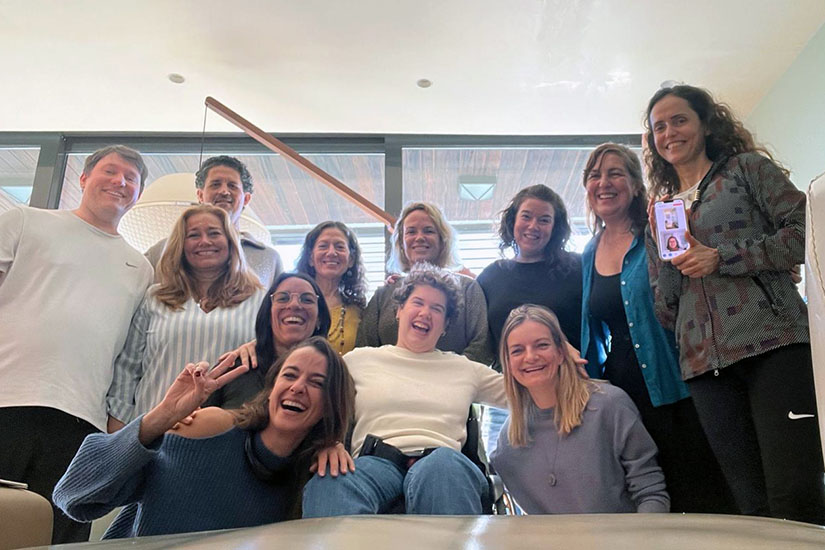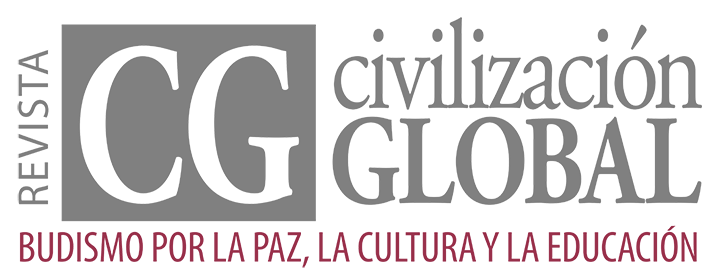Resources for the introduction of SGI-Spain’s discussion meetings
The name “Never Disparaging” refers to the three inherent potentials of the Buddha nature that is present in the minds of all living beings. The Buddha nature is the Dharma nature. And the Dharma nature is Myoho-renge-kyo.
↳ OTT, page 151. The Record of the Orally Transmitted Teachings is a collection of Nichiren Daishonin’s oral teachings about the Lotus Sutra expounded during his years at Mount Minobu, where he established himself in May 1274 until the 8 of September 1282, just a few weeks before he passed away. These teachings were registered and collected in two volumes by his disciple and successor Nikko Shonin.
[T]he Daishonin says that all people possess the three inherent potentials of the Buddha nature —the innate Buddha nature, the wisdom to perceive it, and the good deeds, or practice, to develop this wisdom and cause the Buddha nature to emerge. This is the fundamental truth underlying the respectworthiness of all people and the ultimate principle motivating us to engage in the practice of Bodhisattva Never Disparaging. (…) However, even gold, if it remains buried in the ground, cannot reveal its value. Likewise, to mine the gold of the Buddha nature, we need good deeds, or practice, to develop wisdom and uncover the gold. This wisdom is what enables us to perceive the lustrous gold within us and to recognize its true value.
The defining characteristic of Buddhism is that it clarifies the way to activate the Buddha nature which, though inactive at the moment, exists innately within all people.
The ability to awaken and reveal the Buddha nature exists potentially within everyone, but the influence of another person is required to make an ordinary human being aware of that. What Buddhism calls a good friend is crucial for bringing forth the three inherent potentials of the Buddha nature.
Only a good friend dedicated to the vow for kosen-rufu, who prays for a person’s happiness and teaches them about Buddhism, can awaken that person’s Buddha nature. In some cases, it’s as if that gold of the innate Buddha nature is buried deep in solid rock. But a good friend remains undeterred and keeps at it until they uncover the gold of happiness. Only through the patient, persevering efforts of such a good friend to connect them to Buddhism will a person finally awaken to their potential and become able to excavate their precious inner treasure with their own hands (…) chant[ing] and spread[ing] Nam-myoho-renge-kyo.[1]
The lecture from which the above Gosho quote and commentary have been taken from, which is the one with which the series The Buddhism of the Sun – Illuminating the World concludes, Daisaku Ikeda speaks about one of the thinkers with which he published a dialogue:
University of Denver professor Ved Nanda, a renowned authority on international law, [said] (…): “I, too, have faith in the goodness of the human heart, and I believe that life itself is good. Though we may feel that modern society is enveloped in darkness, change presents ever-present possibilities. I believe in friendship and in people.”[2]
Professor Nanda also had tremendous faith in Soka youth, saying: “It is clear that the work of these young people has been a significant force in solidifying the foundation for world peace.”[3]
Believing steadfastly in our own and others’ Buddha nature (…) are key to transforming this age of the Latter Day of the Law. (…) When one young person after another embraces and carries on this practice, it will bring us steadily and surely closer to realizing world peace.[4]

The name of this discussion group from Barcelona is inspired by a phrase in the 16th chapter of the Lotus Sutra which translates as “Mandarava blossoms rain down.” It makes reference to one of the exuberant phenomena that characterise the Buddha land, even when everything around it seems to collapse. Of course, this land is not a geographic area, but is found in the heart of faith, in other words, in the life state of those who (using an expression found in this section) remain undeterred in their struggle for kosen-rufu, no matter what the circumstances.
Mailbox: prensa@ediciones-civilizacionglobal.com
[1] ↑ Extract from the “Estudio” section in this issue
[2] ↑ NANDA, Ved and Daisaku IKEDA: Our world to make: Hinduism, buddhism, and the rise of global civil society, Cambridge, Massachusetts: Dialogue Path Press, 2015, page. 21.
[3] ↑ Ib., page 168.
[4] ↑ Ib. note 1.

